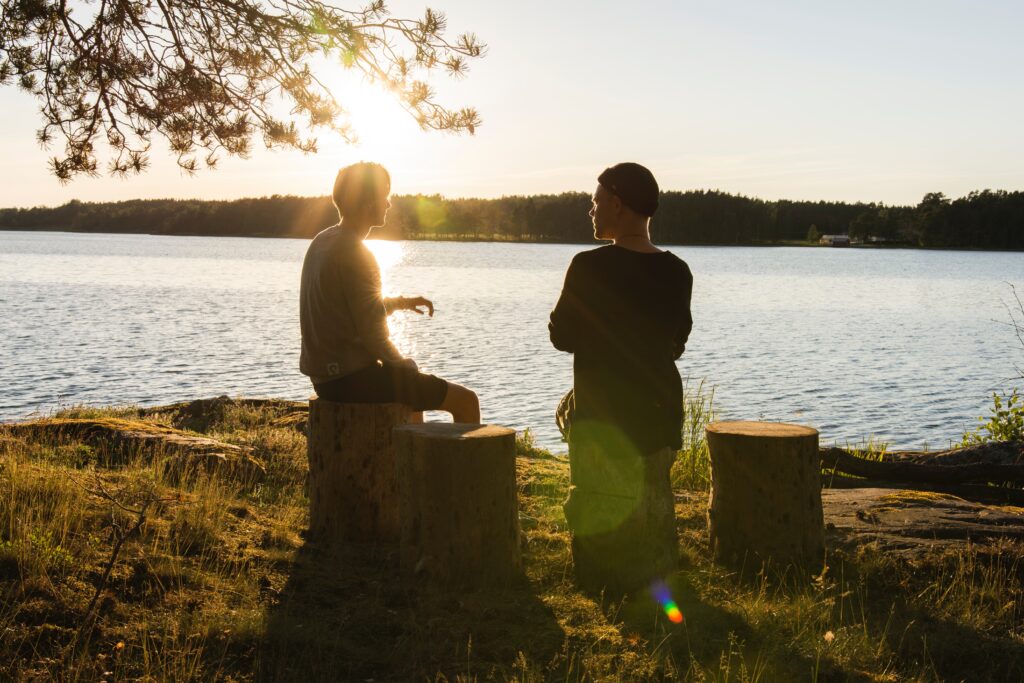A few years ago, alcoholism consumed my life. I wallowed in a harmful cycle of smoking, unhealthy eating, and an overall toxic lifestyle. My physical and mental well-being suffered. But during that dark period, I embarked on an incredible journey to reclaim my life and discover a new way of living. If you want to learn more about my experience, check out my article, “From Darkness to Light: My Journey to a Fulfilling Life.“
Along the way, I had a simple yet profound realization: I needed to change. I couldn’t rely on the world or wait for someone else to bring about the transformation I so desperately needed. To live a life of abundance and thrive, I had to bravely challenge my own behaviors and mindset. Only then could I find the path to a better life.
Although this realization may sound straightforward, it’s surprisingly challenging, as many people struggle to embrace it.

The Struggle to Embrace Change
A few months ago, a young man in my organization named Casey reached out to me, seeking guidance and mentorship. I was thrilled to support him on his journey, so we began discussing the fundamentals of building good habits and nurturing a successful mindset and lifestyle.
During our heartfelt conversations, I suggested the habit of daily reading and emphasized how it expands our knowledge, promotes personal growth, and broadens our perspective on life. But here’s the surprise: Casey adamantly rejected the idea, refusing to even consider it. He firmly believed that reading wasn’t his preferred way of learning and preferred podcasts and documentaries instead.
Undeterred by his response, I decided to change gears and bring up the topic of fitness. However, Casey’s reaction caught me off guard once again. He became defensive, started hurling insults, and insinuated that those who focus on fitness must have distorted views of themselves. He was correct in emphasizing that pursuing fitness shouldn’t stem from distorted self-perception or superficial motives. Yet he missed the value of striving for a well-rounded, healthy lifestyle that encompasses physical, mental, and emotional well-being.
I then tried to discuss servant leadership with Casey, highlighting the significance of empathy in effectively guiding and supporting others. However, he argued that subordinates should simply trust their leaders and follow orders, showing no interest in understanding the importance of building healthier relationships. When I attempted to explore the significance of nurturing connections further, he dismissed such “touchy-feely” topics entirely.
Resistant to Change: Resistant to Improvement
Recognizing Casey’s unwillingness to engage in open-minded conversations or consider new ideas, especially when it came to examining his own behavior, I found myself faced with a difficult decision. I didn’t want to waste time and energy trying to persuade him or change his deeply rooted beliefs and actions.
In the end, I concluded that continuing to mentor Casey would yield little progress. It wasn’t about whether he agreed with the principles I shared. His inability to approach discussions with an open mind and his resistance to exploring fresh ideas concerned me. It simply wouldn’t be worthwhile to invest my time in mentoring someone who staunchly refused to entertain the possibility of changing their habits and behaviors.
Creating a Lifestyle of Healthy Habits
In this world, so many people are facing tough challenges and holding onto hope for better days ahead. Some folks are struggling with unemployment or feeling trapped in low-paying jobs, desperately seeking a way out. Others find themselves in unhappy relationships that aren’t nourishing their well-being, yearning for something more fulfilling. And many individuals are burdened by overwhelming anger, stress, or anxiety.
Unfortunately, what I’ve noticed is that many of these individuals resist the idea of personal growth. They believe that the world should change first, rather than looking inward and examining their own lives. But here’s the truth: if we truly want to thrive, sticking to the same old routines won’t get us there. It just doesn’t work like that. We need to actively create a life built upon positive habits and behaviors that lead us to success. We must deliberatively shape and transform ourselves. It’s about taking action and making changes from within, rather than passively hoping for others to change.
The Crippling Effects of Confirmation Bias
Most of us engage in conversations or follow the news to reinforce what we already believe or to convince others to see things our way. We’re eager to prove our points and get others to change their minds. That’s exactly what happened with Casey. He came to me seeking advice, but he was so firmly stuck in his own confirmation bias that he couldn’t even be open to receiving it.
Confirmation bias is a natural tendency we all have. It means we seek, interpret, and remember information that supports our existing beliefs, while ignoring or downplaying evidence that goes against them. This bias limits our ability to have open-minded discussions and makes us resistant to considering ideas that challenge our current mindset or behaviors.
In the book “You’re Not Listening” by Kate Murphy, she brilliantly explains this principle. She says, “We can’t help ourselves because when our deeply held beliefs are challenged, it feels like a threat to our very existence.” Later in the same book, she adds, “Confident people aren’t bothered by different opinions, as they find security in allowing their beliefs to be questioned.”
The Paradox of our Own Ignorance
According to Geoffrey Cohen, in his wonderful book “Belonging,” he says, “In our everyday lives, we are free to socialize across boundaries and to share perspectives and information. But the prospect of doing so has come to seem so inconvenient, unpleasant, and threatening that far too few take the trouble to engage in such dialogue. Many of us choose to watch and read almost exclusively the sources of information that support our beliefs and positions.”
Now, here’s an interesting paradox. If you believe you’re not affected by confirmation bias, you’re actually more likely to be influenced by it. People who think they’re immune to it become less cautious and fail to protect themselves from this bias. On the other hand, those who acknowledge their vulnerability to it are more careful and aware. By recognizing confirmation bias, we can actively work to overcome it. We can seek out diverse perspectives and challenge our own assumptions. This helps us develop intellectual humility and approach conversations with a genuine curiosity to learn and grow, without being limited by the constraints of confirmation bias.

The Courage to Have an Open Mind
To be clear, I’m not asking you to change your behavior after every conversation. I’m simply suggesting that you change your mindset during the conversation and be open to self-reflection.
I understand that not all advice you receive will be relevant to your unique situation. You should use your judgment to consider which pieces of wisdom align with your goals and values and integrate them into your life. This empowers you to make informed decisions. In other words, it’s okay to ignore advice that doesn’t resonate with you, but dismissing and disregarding shouldn’t be our go-to response. We should approach it as a last resort after careful and open-minded consideration. To bring about change, we must first be willing to listen to others with a genuinely open heart.
Let’s approach conversations with an open mind and the courage to listen. Let’s pay attention to others, respecting their thoughts and ideas. Our goal should be the pursuit of knowledge and personal growth, focusing on changing ourselves rather than trying to change others or prove ourselves right. This is the real path to making a positive impact in our lives and breaking free from negative patterns that hold us back.
My experience with Casey reminded me of the importance of approaching conversations with an open mind and truly hearing what others have to say. Sometimes, despite our best intentions, there will be people who are unwilling or unable to engage in open-minded discussions. My goal is not to change those individuals, but rather to ensure that I am not one of them.

